WHAT IS PAST IS PROLOGUE
- words outside the National Archives, Washington, DC, taken from The Tempest
To live outside the law you must be honest
- Elston Gunnn
I. One rainy night in August, as the three kings rolled into town, they thought they saw Frankie Lee making the rounds. He ducked his head and tried to hide, but they spotted the museum he disappeared inside. They knocked and asked but it became a strange hotel, so the first gathered his luck, the second his gifts, the third her kicks… and they found a bed, instead, out on Route 66.
II. Tulsa from tallasi, “old land.” The Lochapoka and Muscogee Creek settled Tallasi in 1836, called it that because the oak by the bend in the river looked like one from back in Alabama. They arrived to a land they had always known did not belong to them, except in the grandest sense. It was 1836, recent, antebellum, genocide. And yet, supreme continued lip service: “[i]n light of McGirt and the follow-on cases, the eastern part of Oklahoma, including Tulsa, is now recognized as Indian country. About two million people live there, and the vast majority are not Indians.”1 Old land, Tulsa.
III. The three kings arrived to a land they did not know but which everyone said was theirs. They saw the oil fields surrounding and figured it must be true, but they didn’t see the writing on the wall: “At the outset, it is clear that to take delight in, to use, and to possess are inextricably linked and, moreover, that enjoyment entails everything from the use of one’s possession to the value of whiteness, which can be considered an incorporeal hereditament or illusory inheritance of chattel slavery.”2 Well, the third king saw, but she didn't very much understand.
IV. Early the next morning, an errant notification awoke them: “The bottom line: Be on the lookout for people's talents and do your part to cheer them on.” They promptly booted, donned New Yorker totes, and were ready to go. It was still raining. When at last the three found Reconciliation Way, later that day, they decided not to ask. The signs were all clear, the institutions took card, both required masks. It wasn’t even Halloween, they were searching for novel, so a docent inquired if they bothered to go farther. Furthur? they asked, and he said Yes Father. “Not too far,” they sang, “but just far enough so’s we can say that we've been there,” and the docent said walk along this ribbon with me.3 Said his name was Judas Priest and with that began to dance.
V. ASIDE (Gift Shop Receptionist to Archivist): “There is a creeping consumption in the land. It begins with these three fellas and it travels outward. Never in my life have I seen such a motley crew. They ask nothing and they receive nothing. Forgiveness is not in them. The wilderness is rotten all over their foreheads. They scorn the widow and abuse the child but I am afraid that they shall not prevail over the young man's destiny, not even them!”4
VI. Dearest Woody, somewhere out between Okemah and Pampa and not wont, either, to sing God save the Queen. Lost many to fire when younger, hunger, then many mems in railcars from Californee to the Gulf Stream, slaying fascists right and left with harmonee, before settling back down in Tallasi and waiting for his son.
VII. They came to a wall with four and twenty windows and an exhibit in each one. The docent doled out doses like mimosas and showed them a pane that read “I’ve wrongly been thinking that when a ray of light leaps out from anywhere it never does come back, it goes way out there to Mexico, out to where the doggies go…I’m glad to hear you say Mr Einstein that my light-ray does come back, maybe a bit bent up though maybe…Come scientific socialism Albert, every little kid among us will be riding around on one of these light rays that you’ve brought back.”5 And a picture, too:
VIII. The first two kings stepped back, amazed, but the third wasn’t in the slightest. Don’t get it twisted, she said, hearing some bioluminescent reverberations. Sure enough, a voice soon rang out: “There was a big high wall there that tried to stop me. / The sign was painted, said ‘Private Property.’ / But on the backside, it didn’t say nothing. / This land was made for you and me. / One bright sunny morning in the shadow of the steeple, / by the relief office I saw my people. / As they stood hungry, / I stood there wondering if this land / Was made for you and me.”6
IX. The first two, too, heard this through their brick skulls, and the wheels began to turn. “The things they have done to us!” the first king shouted to the second. “The truths they have turned into lies. The ideals they have fouled and made vile… He was one of us. He knew. When He said that it is harder for a camel to pass through the eye of a needle… He damn well meant just what he said. But look what the Church has done to Him during the last two thousand years… He would be framed and in jail if He was living today.”7 The second just glugged and plugged his flask.
X. Woody’s a pacifist ‘til the Nazis go to Russia, then he starts singing “beat Hitler songs.” Joins the merchant marine because he doesn’t want to kill anyone. Leaves military service because of Hiroshima and Nagasaki. First half is all Mark Twain, second, Kurt Vonnegut. Maybe Herman Hesse was thinking about these things, but Woody’s not reading eastern philosophy — just a curious mind with almost no education.
XI. The third had gone on looking for the key, with the devilish docent following in behind, humming: “No martyr is among you now whom you can call your own, so go on your way accordingly, but know you’re not alone.” The facts, to her, were already known and the archive, retroactively, was superfluously closed, so she asked if anyone could resurrect Henry Wallace, ‘48 candidate for Prez, with Alan Lomax as music director and all that Woody Sez. Wallace’s wooden platform was built on “conciliatory policies toward the USSR, desegregation of public schools, racial and gender equality, a national health-insurance program, and other left-wing policies… He was deeply interested in religion from a young age, reading works by authors like Ralph Waldo Emerson, Ralph Waldo Trine, and William James, whose The Varieties of Religious Experience had a particularly strong impact on Wallace. After his grandfather's death in 1916, he left the Presbyterian Church and became increasingly interested in mysticism.”8 Alas, no one heeded her call -- unless you count Bernie, shivering in a corner, enwrapped within a shawl.
XII. This was something, but the first two were hungry and had moved on to the other room where Judas was saying how the return to early folk and the Bible… and how Rome... and how old, weird America… and how… and… They stood there sweating, trying to wrap their heads ‘round what someone else had to have said.
XIII. Most of the album comes from a disembodied voice, the whispers of towns folks between the trees… names resound, words exist in public spaces, legends and rumors seem to speak with their own voice. Hymns muttered on dusty dirt roads.
XIV. The first two kings slunk away to the gift shop and saw beer and vegan brunches beyond. They wished their partner would not take so long, so they opened a brochure that was just lying there on the ground: Indian country Tallasi remains, the moth-eaten cover did maintain: “On the far end of the Trail of Tears was a promise. Forced to leave their ancestral lands in Georgia and Alabama, the Creek Nation received assurances that their new lands in the West would be secure forever.”9 The one turned to the other with a wry smile turned upside down. But his co-consul just pointed to a reply by you know who, annotated out the fucking wazoo: "The dissent emphasizes the history of mistreatment of American Indians. But that history does not resolve the legal questions presented in this case… From start to finish, the dissent employs extraordinary rhetoric in articulating its deeply held policy views about what Indian law should be… But this Court’s proper role under Article III of the Constitution is to declare what the law is, not what we think the law should be…"10 Squeals of delight carried all the way from Scalia's tomb, and the first king called up his old law clerk with a question. “Where this Court once stood firm," the clerk intoned, "today it wilts."11 The clerk hung up and kept dredging for silt.
XV. She had, meanwhile, proceeded down the dark nave, followed by Scalia’s ornery grumbling in his grave. A movie from 1921 was playing when she rounded a corner: Dick Rowland in an elevator and a pretty young operator; Dicky said Shine your shoes? and she said I got the vote first. Next thing Dick knew, it had all come to blows. Peering through bars, white mob in window, Greenwood District, no one even told. Reports said 30, when more like 300. Property all torched, capital back to nothin’ — she turned away sharply like nothing had happened, but it couldn’t be hidden, her producing a napkin.
XVI. Slavery was a bad thing, and freedom, of the kind we got, with nothing to live on, was bad. Two snakes full of poison. One lying with his head pointing north, the other with his head pointing south. Their names was slavery and freedom. The snake called slavery lay with his head pointed south, and the snake called freedom lay with his head pointed north. Both bit the n*****, and they was both bad.12
XVII. Right then and there, emerging from a kind of stupor, she saw Frankie Lee by his oblique coattails. He moved with a peculiar “soulful bounding leap, and foaming at the mouth,” she saw, “he began to make his midnight creep / For sixteen nights and days he raved / but on the seventeenth he burst / into the arms of” Willie Dixon13 / “which is where he died of thirst.”14 When she opened her eyes, no time had passed, not even the clock, and, following the caravan around the bend, she emerged to the block. It was late in the day — but still rather hot.
XVIII. We feel that even when all possible scientific questions have been answered, the problems of life remain completely untouched. Of course there are then no questions left, and this itself is the answer. The solution of the problem of life is seen in the vanishing of the problem. What we cannot speak about, we must pass over in silence.15
XIX. While contemplating the visitation of that obelisk whose subject yearns for it not to exist, the three drunk fools sighingly reminisced on what was lost and lacked and lapsed and left, how all was for naught, how to leave would be best. But upon the ray-shafted sidewalk corner a man crouched amongst aerosol. How often did he go to those museums? they asked. He said not at all. Sure, he continued, “I like all my old songs. It’s just that things change all the time. Everybody knows that. I never said they were ‘rubbish.’ That’s not in my vocabulary. I wouldn’t use the word rubbish if it was lying on the stage and I could pick it up."16 They asked him to say more but he just shrugged his coat, said I never been there before I just do my own shit. He gave them a painting, spat them a verse, pointed to a girl on a carton, said She was here first. So they crawled to the child and asked for a tale. “Let us not talk falsely now," she wailed, "the hour is getting late.” Then drew them their portrait, as the three they looked on. In the park just beyond, the band had struck up a song.
XX. playing another person’s music... it’s like getting inside of another person’s soul. most people have enough trouble getting inside of their own souls & to take on another one, really most of the time cant be worth the ride. like for instance, there’s not too much to getting into a chuck berry song. it’s all pretty much there on the surface… same thing with the beatles. you learn the chords & sing the words & youre a beatle. there’s no pain involved… my songs… you have to get somewhat inside & behind them & it’s hard enough for me to do it sometimes… But [Jimi] sang [my songs] exactly the way they were intended… i see that the message must have been his message thru & thru. not that i ever could articulate the message that well myself, but in hearing jimi cover it, i realize he mustve felt it pretty deeply inside & out & that somewhere back there, his soul & my soul were on the same desert.17
XXI. The three kings skipped town around about then, they had learned quite enough — to be content with the sun, to give it all, must. The first had lost his luck and the second all his gifts, so they frankly shared the third king’s many, lovely kicks. There were swooshes on the sides and lots of fun involved, as they traipsed on down the road looking for Santa Claus. Better start sinking or you’ll swim like a stone, said the first one out the blue. I think Abraham Lincoln said that, laughed king number two. A house appeared from nowhere, but the third she had to go. Don’t go mistaking paradise, she called, for that home across the road. That was the last they saw of her, and the last anyone saw of them. Nothing is revealed, yet we worry at the hem.
Oklahoma v. Castro-Huerta, U.S., 2022 (majority opinion by associate beer drinker).
Saidiya Hartman, Scenes of Subjection, 1997.
Bob Dylan, John Wesley Harding liner notes, 1967.
Id.
Woody Guthrie letter to Albert Einstein.
Woody Guthrie, “This Land is Your Land,” original 1940 version.
Carson McCullers, The Heart is a Lonely Hunter, 1940.
Wiki.
McGirt v. Oklahoma, U.S., 2020.
Oklahoma v. Castro-Huerta, U.S., 2022.
Id. Gorsuch dissent.
Patsy Mitchner 1937 interview, from Federal Writers' Project (WPA): Slave Narrative Project, Vol. 11, North Carolina, Part 2, Jackson-Yellerday via Hartman, Scenes of Subjection.
Back Door Man, 1961.
“The Ballad of Frankie Lee and Judas Priest,” 1967.
Wittgenstein, fully post-verbal.
Bob Dylan, London circa 1966.
Bob Dylan letter/eulogy to Jimi Hendrix.





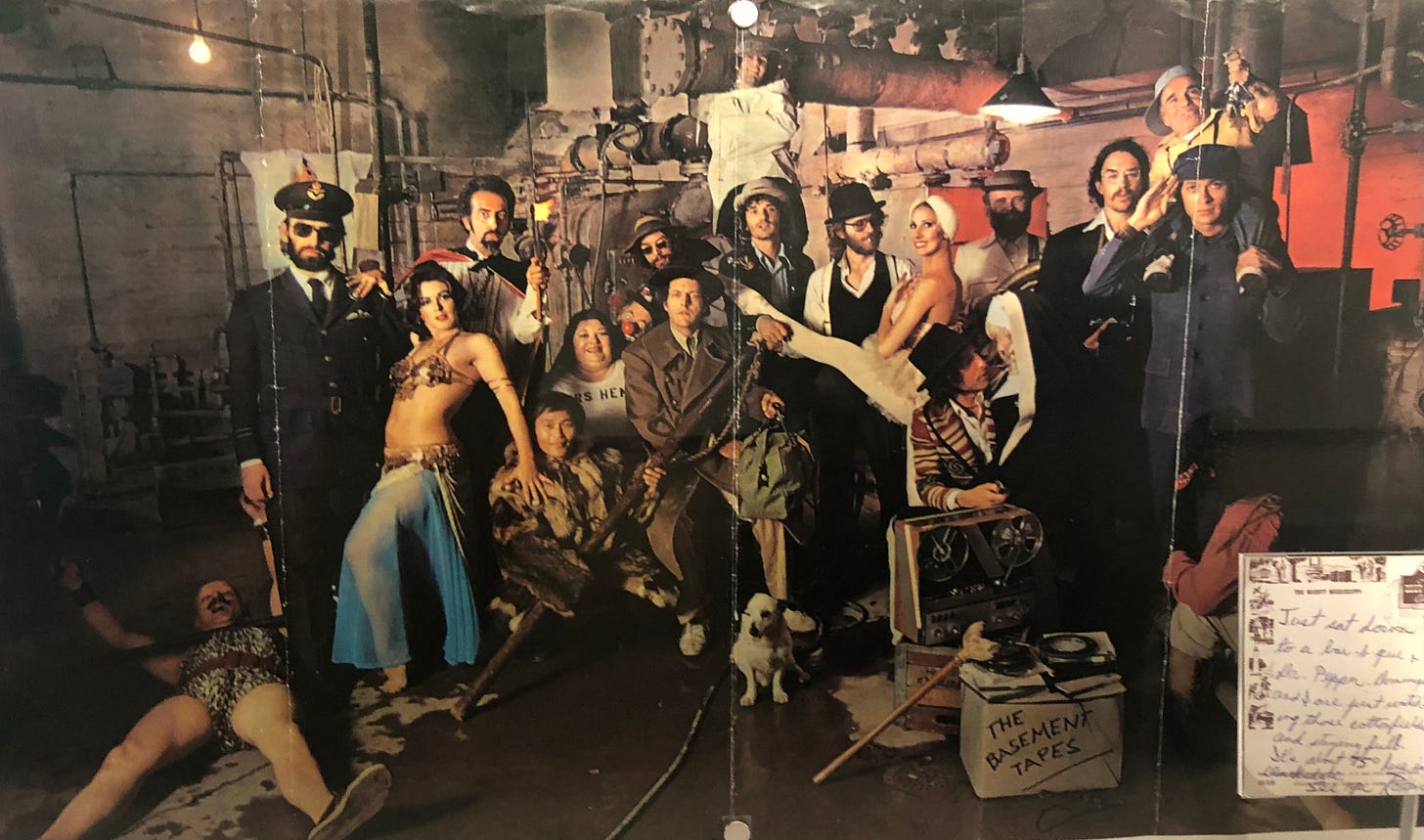

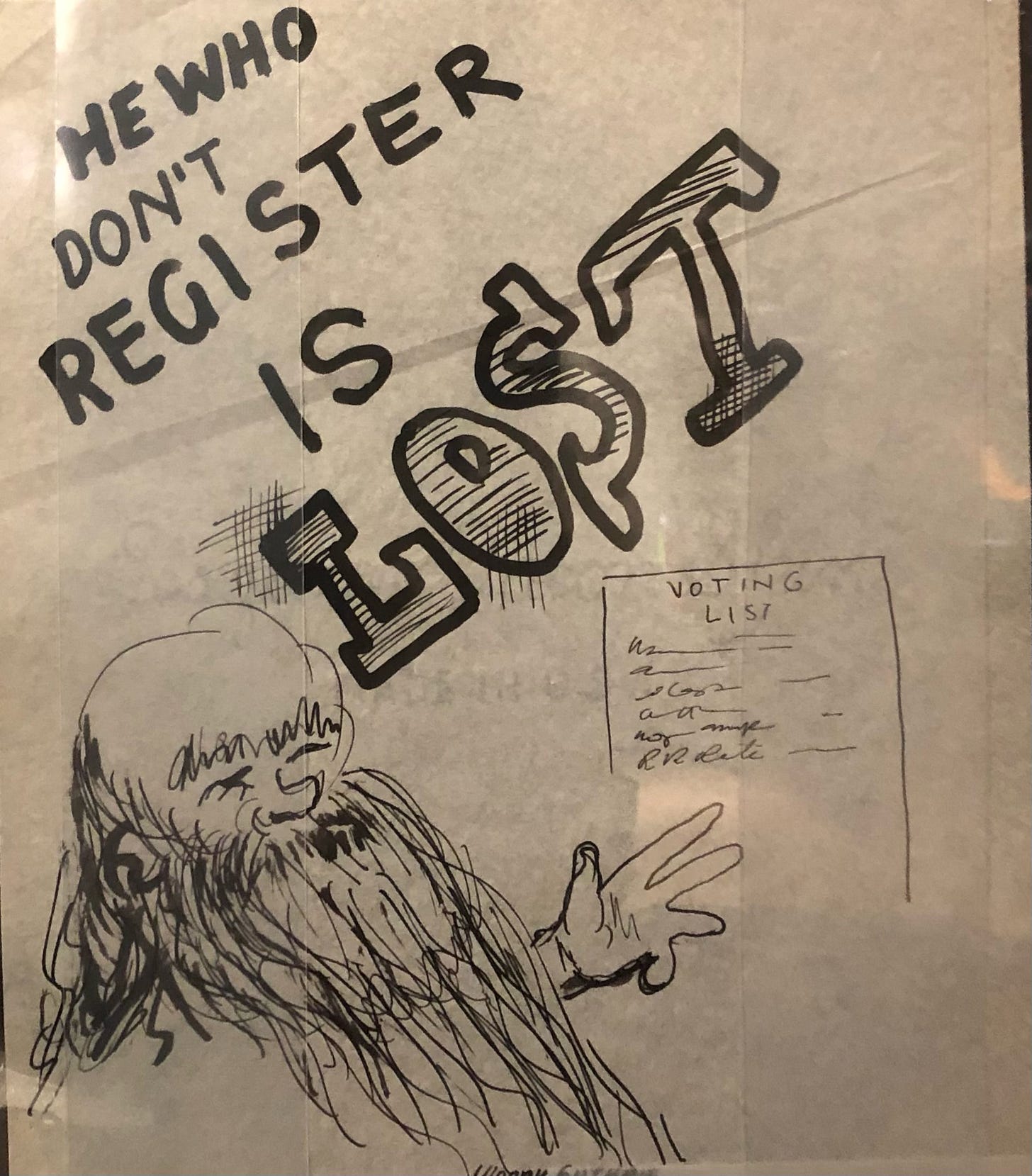
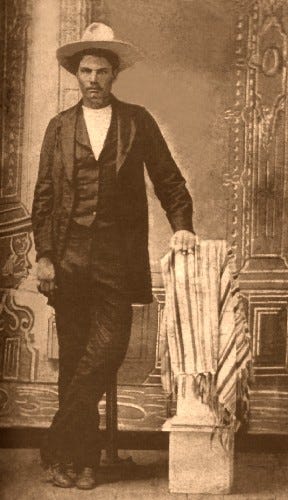
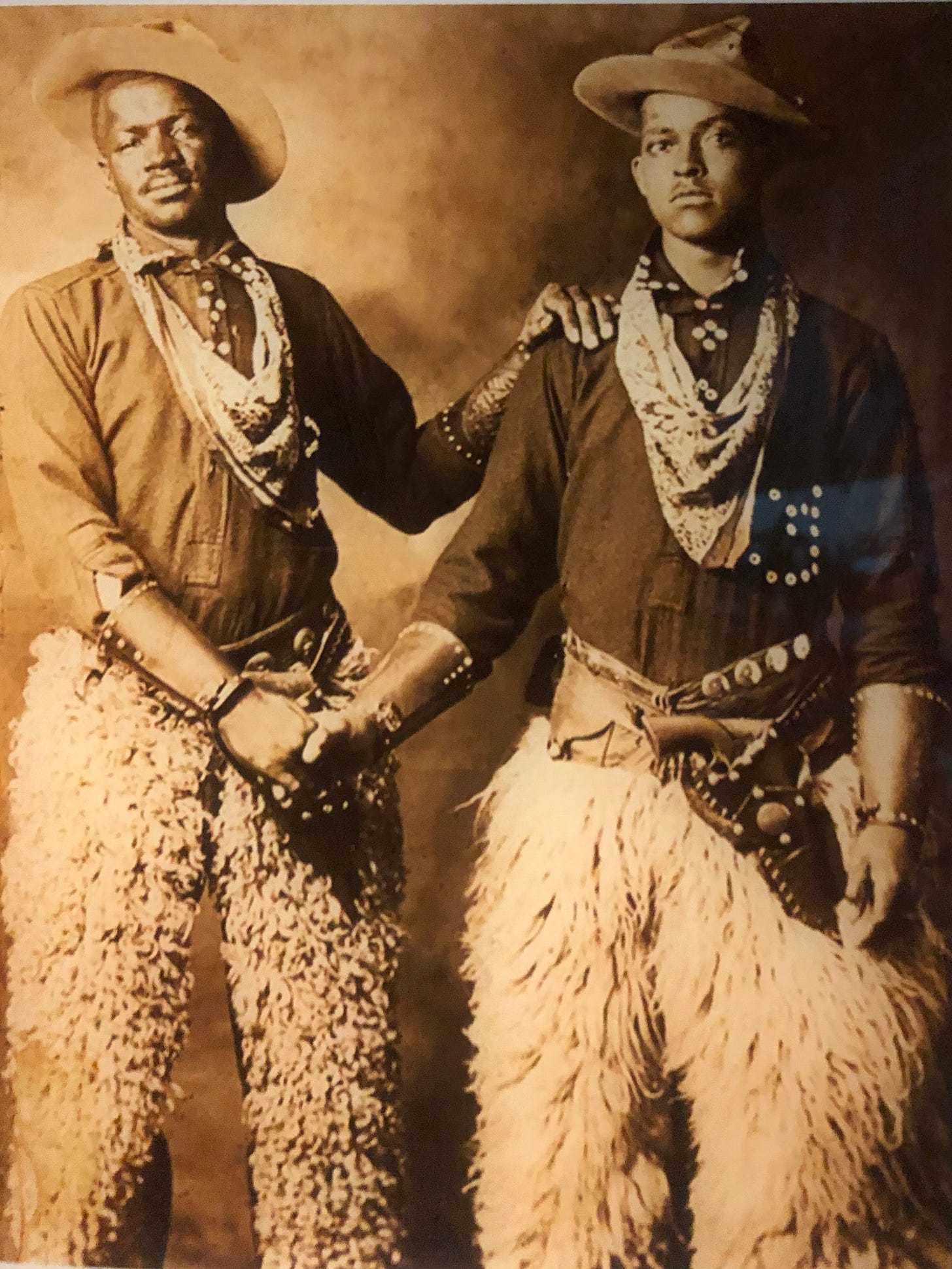
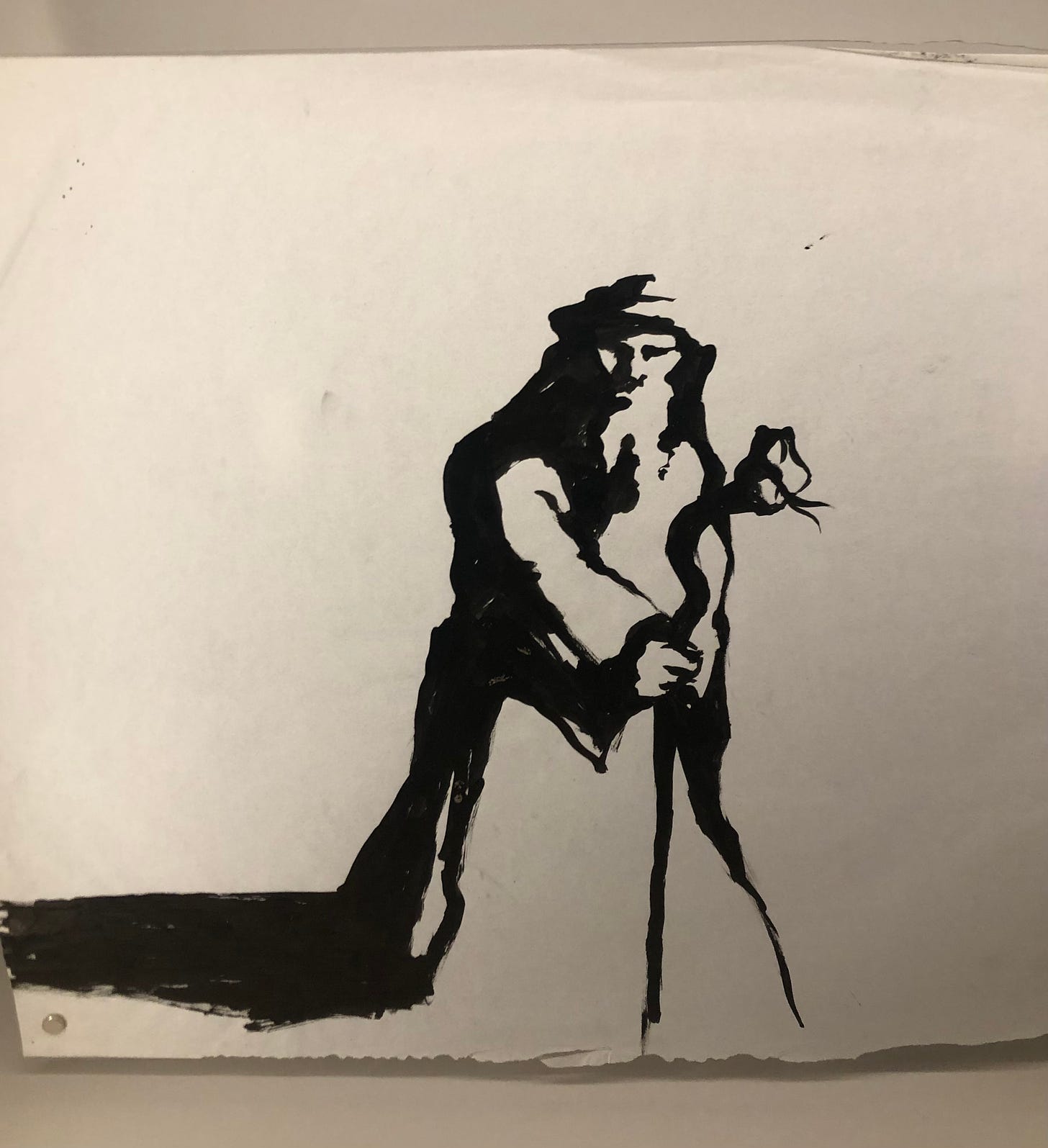

jingle jangle morning highway